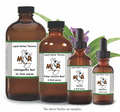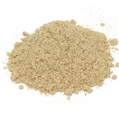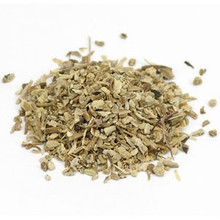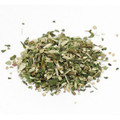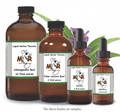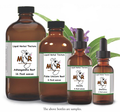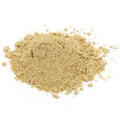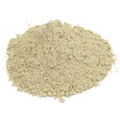 Loading... Please wait...
Loading... Please wait...- Home
- Bulk Herbs
- Herbs (D-F)
- Echinacea purpurea Root
- Home
- Herbs - Organically Grown & Wild Crafted USA
- E-F
- Echinacea purpurea Root
Echinacea purpurea Root
Product Description
Echinacea Purpurea Root
Also Known As - Commonly called purple coneflower
Organically Grown USA - Hand Harvested without machinery. No "USDA Approved Pesticides or Chemical soil additives". Not sterilized with surfer wash, heat steamed or heat dried.
Medicinal Uses - Internally, Echinacea has been used internally via IV in Europe as a supplemental treatment for cancer. It is taken as tablets, capsules or tincture to prevent cold and flu and to generally boost the immune system. It increases the production of T-cells and according to several studies, this herbal medicine is most effective at stimulating phagocytosis, or encouraging white blood cells and lymphocytes to attack invading organisms. Externally this herbal remedy is used externally as an ointment for skin inflammations and wound healing. It has a mild anti-biotic, anti-viral and anti-fungal action. Some use it to help acne, eczema, burns and insect bites.
Herbs to Combine/Supplement - Combined with Bearberry and Yarrow, Echinacea is thought to be effective against cystitis.
Parts Used - Roots are dug up and dried for use in tinctures, juice, extracts, ointments, tablets, tea and capsules. The aerial portions are sometimes used in conjunction with the roots in mixtures.
Precautions - There are some who should not take this herb. If you suffer from autoimmune disorders like AIDS/HIV, white blood cell disorders, tuberculosis or multiple sclerosis, it is best avoided. If you take steroid medications such as hydrocortisone, cortisone, prednisolone or similar immune suppressants, you should not take this herb, as it may counteract the medications you are taking. While the herb is considered to be safely tolerated by most people, be alert to signs of allergic reactions.
Preparation and Dosage - While the roots contain the most effective compounds, increasingly commercial preparations are also including the leaves, flowers, seeds and stems, so different products may contain different amounts of the beneficial compounds. For liquid extracts or tinctures follow manufacturer's instructions, as formulations may vary. Extracts are often prepared with glycerin or alcohol, so if you are sensitive to either of these substances, avoid them. Recommended dosages range from one to five droppersful (0.5 to 5 ml) three times per day.
For herbal tea - Tea brewed from roots and/or aerial parts and taken no more than 1 cup three times per day.
Disclaimer - These products are not intended to diagnose, treat cure or prevent any disease. Reviews are not intended as a substitute for appropriate medical care or the advice of a physician or another medical professional. Actual results may vary among users. Mountain Maus Remedies LLC makes no warranty or representation, expressed or implied, as to the accuracy or validity of the information contributed by outside product review submissions, and assumes no responsibility or liability regarding the use of such information. The information and statements regarding the dietary supplements have not been evaluated by the Food and Drug Administration. If you have a medical condition or disease, please talk to your health care provider. If you are currently taking a prescription medication, you should work with your health care provider before discontinuing any drug or altering any drug regimen, including augmenting your regimen with any herb or dietary supplements. Do not attempt to self-diagnose any disease or ailment based on the reviews and do not use the information contained herein for diagnosing or treating a health problem or disease. Proper medical care is critical to good health. If you have a health concern or suspect you have an undiagnosed sign or symptom, please consult a physician or health care practitioner.







